
• So much to discuss, and I won’t come close to getting to it all. But, first, I suggest we observe a moment of respect for Dogma, which is so often treated shabbily and disdainfully, especially by cowards, fools, and sycophants:
From the age of fifteen, dogma has been the fundamental principle of my religion: I know no other religion; I cannot enter into the idea of any other sort of religion; religion, as a mere sentiment, is to me a dream and a mockery. As well can there be filial love without the fact of a father, as devotion without the fact of a Supreme Being. What I held in 1816, I held in 1833, and I hold in 1864. Please God, I shall hold it to the end. …
Secondly, I was confident in the truth of a certain definite religious teaching, based upon this foundation of dogma; viz. that there was a visible Church, with sacraments and rites which are the channels of invisible grace. I thought that this was the doctrine of Scripture, of the early Church, and of the Anglican Church. Here again, I have not changed in opinion; I am as certain now on this point as I was in 1833, and have never ceased to be certain.
That from Apologia Pro Vita Sua by Blessed John Henry Newman, who was not a coward or a fool, or anything resembling a sycophant.
• Back on January 8th, on the Epiphany of the Lord, the Chicago Sun-Times reported that Cardinal Blase J. Cupich of Chicago was “presiding over the opening mass for National Migration Week at Holy Name Cathedral. People from more than 40 countries participated in the service, many dressed in their native garb. The service was meant to answer Pope Francis’ call ‘for a culture of encounter with all immigrants and refugees.'” This stood out:
In his homily, Cupich compared the strife of present-day migrants to the magi who sought Jesus Christ after his birth. Cupich said “there is great joy that the church experiences day after day as it works with migrants and immigrants,” helping them find jobs or places to live.
The comparison is curious. The magi from the East were not migrants; they were not fleeing their country; they were not looking for a place to live; they did not require assistance in finding a permanent residence. And, having visited the Christ Child and the Holy Family, we read, they were “warned in a dream not to return to Herod, [and] they departed to their own country by another way” (Matt 2:12). This is not to express some partisan point about immigrants and refugees, but to note the misuse of Scripture for political ends by certain Church leaders. Cardinal Cupich refers to “following the light of diversity”, as if the magi’s decision to follow the star can be crammed into a discussion about immigration policy that appears to have only two sides: the enlightened, loving side that welcomes everyone regardless, and the bigoted, fearful side (equated somehow with Herod’s fears) that seeks to shut down borders altogether. (Here is the full homily; more on the Cardinal in Chicago below.)
• Following the Trump administration’s executive order on immigration—which inspired the New York Times to deem President Trump a Christian theocrat and the U.S. bishops to question if he possessed any Christian virtues—Archbishop José H. Gomez of Los Angeles wrote an essay for CNA that had a little bit of everything in it. One point of criticism in that essay seems to be on very solid ground: “The first thing to say is that these executive orders seem like they were put together too fast. Not enough thought seems to have been given to their legality or to explaining their rationale or to considering the practical consequences for millions of people here and across the globe.”
Fair enough. But then there was this:
But does God intend our compassion for people to stop at the borders of Syria? Are we now going to decide that some people are not worthy of our love because they have different skin color, a different religion or were born in the “wrong” country?
As a pastor, what troubles me is that all the anger, confusion and fear that resulted from last week’s orders was entirely predictable. Yet that does not seem to have mattered to the people in charge.
First, the President and his administration are not—or should not be—in the business of figuring out who is “worthy of our love”; they have the responsibility of taking prudent and lawful measures to defend and protect the United States. Most people who are not U.S. citizens do not, strictly speaking, have a right to enter and live in this country, just as I don’t have the right to move to Canada, Mexico, or Italy and expect to be given entrance, shelter, and whatever else I ask for or demand. Nations have a right and a duty to control their borders; the government should not be in the business of “love” (as the 2015 SCOTUS ruling on “Obergefell” suggests in spades).
Secondly, Archbishop Gomez expressed his deep concerns about how the executive order has led to anger, confusion and fear—a result that those in political leadership didn’t appear to foresee or even really care about.
I must say, I had the same reaction and thought upon reading “Amoris Laetitia” the first time. As I wrote after reading the Exhortation:
Unfortunately, the chapters on “pastoral perspectives” (ch. 6) and “accompanying, discerning and integrating weakness” (ch. 8) are often problematic, even contradictory. Many of those divorced and in “a new union,” says Francis, have “proven fidelity, generous self-giving, Christian commitment, a consciousness of its irregularity and of the great difficulty of going back without feeling in conscience that one would fall into new sins”.
This curious statement is followed up by a footnote that casts direct doubt on the realistic possibility of such couples abstaining from sexual relations – by referencing a passage from Gaudium et Spes that has nothing at all to do with those divorced and civilly remarried. Other footnotes also puzzle. There are constant calls for “discernment” and references to impediments and problems that mitigate responsibility and culpability, to the point that one wonders if any married person has ever really committed an actual sin.
I summed up my CWR piece on it by saying, “In short, this is a text that has something for everyone, and a text that will likely frustrate everyone as well.” As many readers know, the confusion, frustration, and even anger has only grown.
What we have in many instances, then, are bishops addressing political policies in great detail while laity grapple with matters of faith and morals. There’s nothing wrong with that in theory, but in both practical and pastoral terms it’s becoming a complete disaster. One of the pressing problems within the Church is a deep erosion of trust in bishops, especially when bishops don’t seem focused on proclaiming the Gospel in and out of season.
• In my opinion, Amoris Laetitia (which does in fact have several excellent and edifying passages), has become a disaster, in no small part because the ambiguity of chapter 8 has now led to a glaring gash and clash within the Church over the matter of Communion for divorced-and-“remarried” Catholics. There have been, of course, many attempts to proclaim the “clarity” of the chapter in question, with each declaration becoming a bit more surreal and a bit more frustrating. Thus, here is Cardinal Cupich today:
#AmorisLaetitia expresses with “absolute clarity” marriage doctrine in full fidelity to traditional Church teaching https://t.co/CkFAj1dMH5
— Cardinal Cupich (@CardinalBCupich) February 14, 2017
Says who? Cardinal Francesco Coccopalmerio, President of the Pontifical Council for Legislative Texts, whose 30-page booklet, published by the Vatican publishing house, was presented earlier today in the Vatican. And what did Cardinal Coccopalmerio have to say at the presentation? Well, nothing at all, as he wasn’t present: “Presenting the book, Father Maurizio Gronchi, theologian, professor at Rome’s Pontifical Urbaniana University and consultant at the Congregation for the Doctrine of the Faith, and veteran journalist Orazio La Rocca, expert in Vatican affairs.” Phil Lawler remarks on the strange absence of the Cardinal:
After the Vatican announced a press conference for the launch of the Coccopalmerio book—with enough ballyhoo to confirm the impressions that this was a bid to end the debate—the cardinal himself failed to appear for the event. The cardinal’s office explained that he had a scheduling conflict.
Now wait just a minute. If you are a publisher, planning the launch of a new book, the very first thing you do is make sure the author will be available for the press conference. If you are the author, and a date is suggested, the very first thing you dois check for potential conflicts. Are we really expected to believe that neither the author nor the publisher did the very first thing to ensure that the press conference would be a success? If this book (a booklet, really) was considered so important, why couldn’t the cardinal rearrange his schedule to attend the press conference, even if he did have a conflict?
• Much attention was given this book presentation as it was rumored to be a sort of unofficially official papal response to the dubia presented last fall by the four Cardinals. But apparently that wasn’t the case at all. What was going on? The CNS piece about the event contains this strange bit of confusing descriptive:
Father Costa told reporters the cardinal’s book is not “the Vatican response” to the challenges posed by U.S. Cardinal Raymond L. Burke and three retired cardinals to the supposed lack of clarity and potential misunderstanding of “Amoris Laetitia.” Rather, he said, it is an “authoritative” reading of the papal document and a contribution to the ongoing discussion.
So, it’s not a “Vatican response”, although Cardinal Coccopalmerio is part of the Vatican, but it is authoritative, presumably because Cardinal Coccopalmerio is part of the Vatican. Got it? Keep that in mind.
• The news accounts indicate that all the usual, dreary, shallow arguments have been recycled by Cardinal Coccopalmerio, with the following quote from his book (translated by Fr. Z) indicating that the papacy of sentimentality may not have been officially involved, but was certainly an influence:
Divorced and remarried, unmarried couples living together, are certainly not models of unions in harmony with Catholic doctrine, but the Church cannot look the other way. For which reason the sacraments of reconciliation and of communion ought to be given also to so-called wounded families and to those who even though living in situations not in line with the traditional canons on matrimony, express a sincere desire to draw closer to the sacraments after an adequate period of discernment.
Ah, “sincere desire”! One need not be a canon lawyer, theologian, or low-level bureaucrat to realize that if “sincere desire” is the criteria, then there ain’t much of a criteria. For more on all of that, see Dr. Edward Peters’ post: “Cardinal Coccopalmerio’s blow upon a bruise”.
• I was reminded by a CWR contributor that back in July 2000, the Pontifical Council for Legislative Texts issued this Declaration “Concerning the Admission to Holy Communion of Faithful Who Are Divorced and Remarried”. One excerpt out of many possible:
In effect, the reception of the Body of Christ when one is publicly unworthy constitutes an objective harm to the ecclesial communion: it is a behavior that affects the rights of the Church and of all the faithful to live in accord with the exigencies of that communion. In the concrete case of the admission to Holy Communion of faithful who are divorced and remarried, the scandal, understood as an action that prompts others towards wrongdoing, affects at the same time both the sacrament of the Eucharist and the indissolubility of marriage. That scandal exists even if such behavior, unfortunately, no longer arouses surprise: in fact it is precisely with respect to the deformation of the conscience that it becomes more necessary for Pastors to act, with as much patience as firmness, as a protection to the sanctity of the Sacraments and a defense of Christian morality, and for the correct formation of the faithful.
2. Any interpretation of can. 915 that would set itself against the canon’s substantial content, as declared uninterruptedly by the Magisterium and by the discipline of the Church throughout the centuries, is clearly misleading. One cannot confuse respect for the wording of the law (cfr. can. 17) with the improper use of the very same wording as an instrument for relativizing the precepts or emptying them of their substance.
Such rigidity!
• A week ago Our Sunday Visitor newspaper published a piece, “Implementation split on new family teaching,” by Brian Fraga that captured some of the—again—confusion:
Catholic intellectuals, moral theologians and journalists seem to be just as divided as bishops when analyzing whether Pope Francis’ 2016 apostolic exhortation on the family, Amoris Laetitia (“The Joy of Love”), permits Catholics who divorce and remarry outside the Church to receive absolution and the Eucharist. …
Regardless of whether they believe the exhortation provides them with flexibility, the fact is that many bishops in the Church have taken the same document and arrived at very different conclusions on what it says about admitting back to the sacraments divorced and civilly remarried Catholics whose first union has not been annulled by the Church.
Examples are given; I am quoted as saying: “All of us, no matter our situation, are called to reject and confess sin, live rightly according to the commands of the Lord and his Church, and not seek excuses or exceptions that justify our situation or weakness…” I also sent Mr. Fraga the following remarks, which were not included in his article, about the Malta directive which stated that if after a process of “discernment” a divorced-and-“remarried” couple “manages, with an informed and enlightened conscience, to acknowledge and believe that [they] are at peace with God, [they] cannot be precluded from participating in the sacraments of Reconciliation and the Eucharist” and then cites Amoris Laetitia (notes 336, 351):
In terms of faith and the sacraments, this is deeply problematic since no Catholic can absolve himself from sins, and certainly no Catholic can be absolved from a sin when they know they are committing an act of sin. Morally, that document flatly states that some such Catholic are in “complex situations where the choice of living ‘as brothers and sisters’ becomes humanly impossible and give rise to greater harm” (again citing AL, note 329). Further, that means—put bluntly—that some people are in such “complex” situations that God’s grace is not sufficient. Or that there are situations in which people have no choice but to commit acts that are sinful. And that, of course, is not just false, but very dangerous for the spiritual well-being of souls.
All that to say that many bishops, of course (Abps. Sample of Portland and Chaput, for example, here in the U.S.), rightly reject these sorts of interpretations, and insist that AL must be interpreted in light of and in harmony with the Tradition, which teaches very clearly that those with grave sin must not receive Communion. That teaching, it must be noted, has not changed, and a statement by a group of bishops or a hazy footnote in an Apostolic Exhortation cannot change it.
There are other issues, not as often remarked, including how we understand the nature of the Church and the communio that exists within her for the sake of union with Christ and the salvation of souls. For instance, to speak of “the issue of how to reintegrate divorced and civilly remarried Catholics into the life of the Church” could be taken to suggest that such folks are outside the Church or are being pushed away from the Church. But that, I would insist, is faulty and misleading, for the Body of Christ is always open to everyone who is willing, by God’s grace, to do what is necessary to have full communion, to be holy, and to be perfect as the Father is perfect (cf. Matt 5:48). All of us, no matter our situation, are called to reject and confess sin, live rightly according to the commands of the Lord and His Church, and not seek excuses or exceptions that justify our situation or weakness.
• Returning to the matter of authoritative readings, varying interpretations, and conflicting perspectives among bishops and cardinals, the OSV article has this humdinger of a quote:
Jesuit Father James Bretzke, a moral theologian at Boston College, noted that Pope Francis’ reluctance to further clarify the document and its application is intentional. “Pope Francis is well aware of what’s going on, but I think he believes, methodologically as a way of governance, that these sorts of issues are best interpreted at the ground level,” Father Bretzke said. “He has by and large avoided the temptation to come down on high and cut off discussion or responses at lower levels, and not just in this area, but many others as well. This is the principle of subsidiarity in practice.”
No, not really. And for the simple reason that doctrine—and, yes, we are talking about doctrine, not just “pastoral practice”—is not up for democratic vote, or some sort of regional movement this way or that way. The notion that Situation A and Situation B can be identical, but one will handled in a completely opposite way because it is in Chicago and not Krakow is absurd, unless you believe the Anglican Communion’s approach to governance, authority, faith and morals, and doctrinal truth has been a winning, smashing innovation. Subsidiarity, while an essential part of the Church’s social philosophy, is all about political governance and the relationship between immediate or local social institutions and more distant institutions, especially the State:
Subsidiarity, understood in the positive sense as economic, institutional or juridical assistance offered to lesser social entities, entails a corresponding series of negative implications that require the State to refrain from anything that would de facto restrict the existential space of the smaller essential cells of society. Their initiative, freedom and responsibility must not be supplanted. (Compendium, 186; cf CCC 1883-85)
The Pope, as supreme pastor of the Church, has a duty and responsibility to defend, uphold, and clarify Church doctrine, especially relating to faith and morals (cf. CCC, 888-892). Does the approach being taken by Pope Francis indicate that is what he is doing? Or wishes to do?
• Which brings me to these bracing remarks, made by Douglas Farrow in the March 2017 edition of First Things:
Reckoning with a pope whose own remarks seem somewhat erratic is one thing. But how are we to reckon with a situation in which the administration of the sacraments, and the theology behind their administration, is succumbing, with his blessing, to regionalism? In other words, how are we to reckon with a situation, nicely timed to the quincentenary of the Reformation, in which being Catholic begins to look quite a lot like being Protestant?
The trauma of the two synods on the family, which led to Amoris and to the dubia, is a trauma for which Francis himself is largely responsible. The ongoing rebellion against Humanae Vitae and Veritatis Splendor is something that he has permitted, if not encouraged. And the flaws in Amoris are of his making. His unwillingness to respond directly to the dubia is not, then, a matter of taste only. In any event, the very fact that the dubia have been put—and they have been well put, whether or not they should have been put publicly—has carried the whole difficulty beyond matters of taste. Cardinal Müller’s denial that there is a doctrinal problem here is unconvincing. ..
It can be no surprise, then, that the sacraments are under renewed attack. For the sacraments are the means by which the Church is ordered and by which she distinguishes, on a practical level, between good and evil. (What is the point of forbidding the evil of divorce, if not to uphold the good of marriage and its witness to the covenant of our salvation? What is the point of forbidding suicide and euthanasia, if not to uphold the sanctity of life and the good of honoring the Lord and Giver of Life?) The sacraments, of course, are much more than that. They are instruments of grace by which God communicates to us his own life through participation in our Lord Jesus Christ. They are not rewards for goodness, but the means of sharing in the God who is good. That is why they are holy sacraments, and it is their very holiness that makes them the object of attack.
If the sacraments were merely means of moral and ecclesial order, or rewards for goodness, it might very well be “pharisaical” to deny them to those deemed somehow disordered, given that we are all disordered, each in our own way. We might then appeal for greater flexibility in sacramental discipline, tempering our concern for justice by our concern for mercy. But the sacraments are not ours; they are Christ’s—just as our bodies are not strictly ours, but have been reclaimed by God in Christ. We do no justice to the mercy of Christ, we show no mercy to those who would enter the justice of Christ, if we change the conditions for reception of the sacraments to conform to private decisions about good and evil.
Amen and amen!
• Oh, and speaking of God communicating to us his own life through participation in our Lord Jesus Christ, I do heartily recommend reading Called To Be the Children of God: The Catholic Theology of Human Deification (Ignatius Press, 2016).
If you value the news and views Catholic World Report provides, please consider donating to support our efforts. Your contribution will help us continue to make CWR available to all readers worldwide for free, without a subscription. Thank you for your generosity!
Click here for more information on donating to CWR. Click here to sign up for our newsletter.




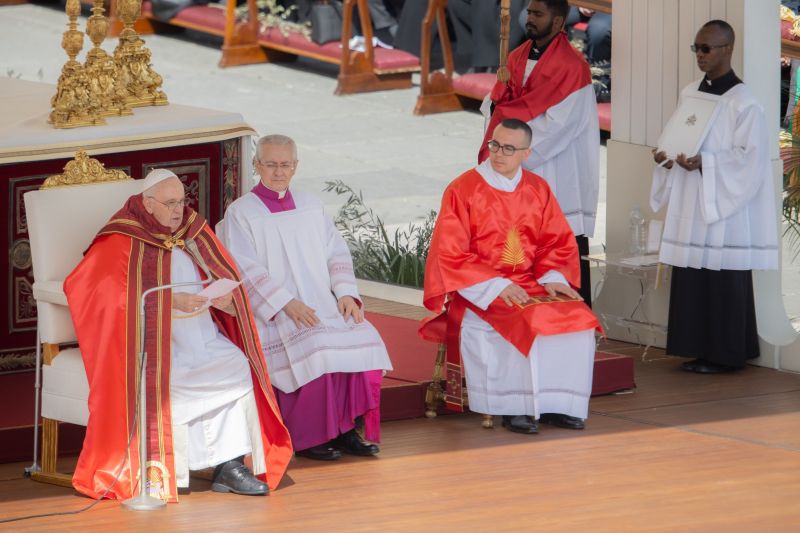
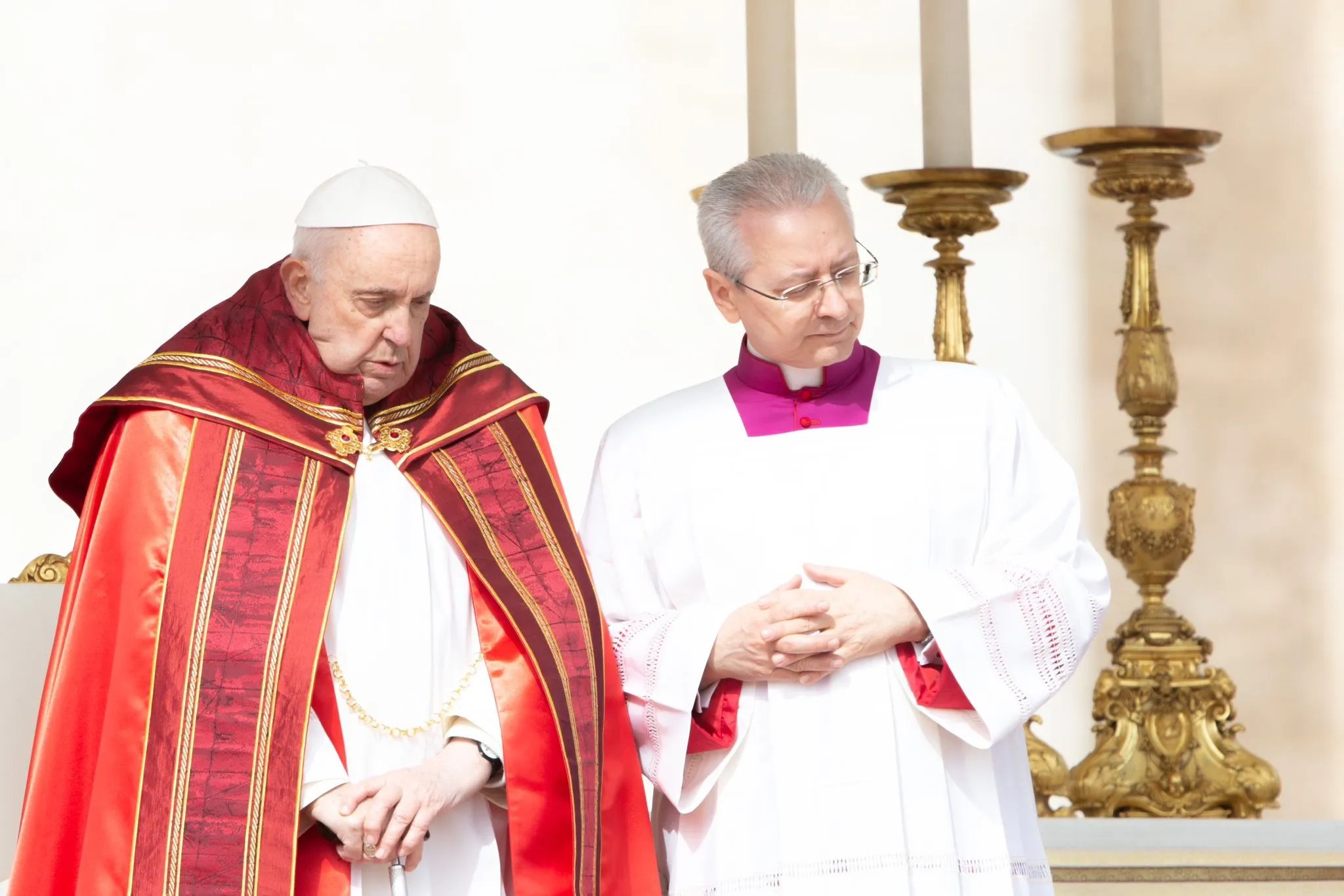
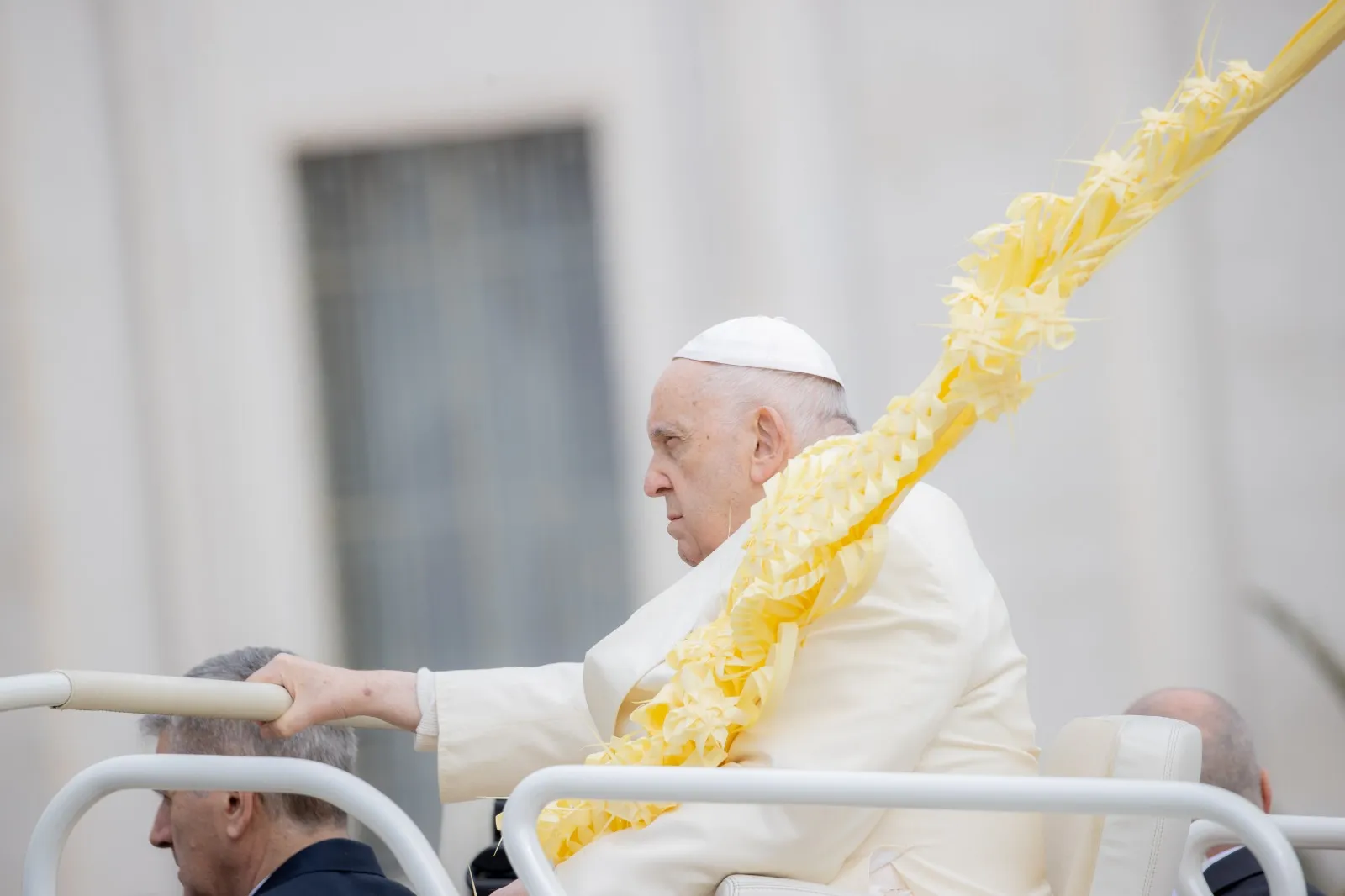
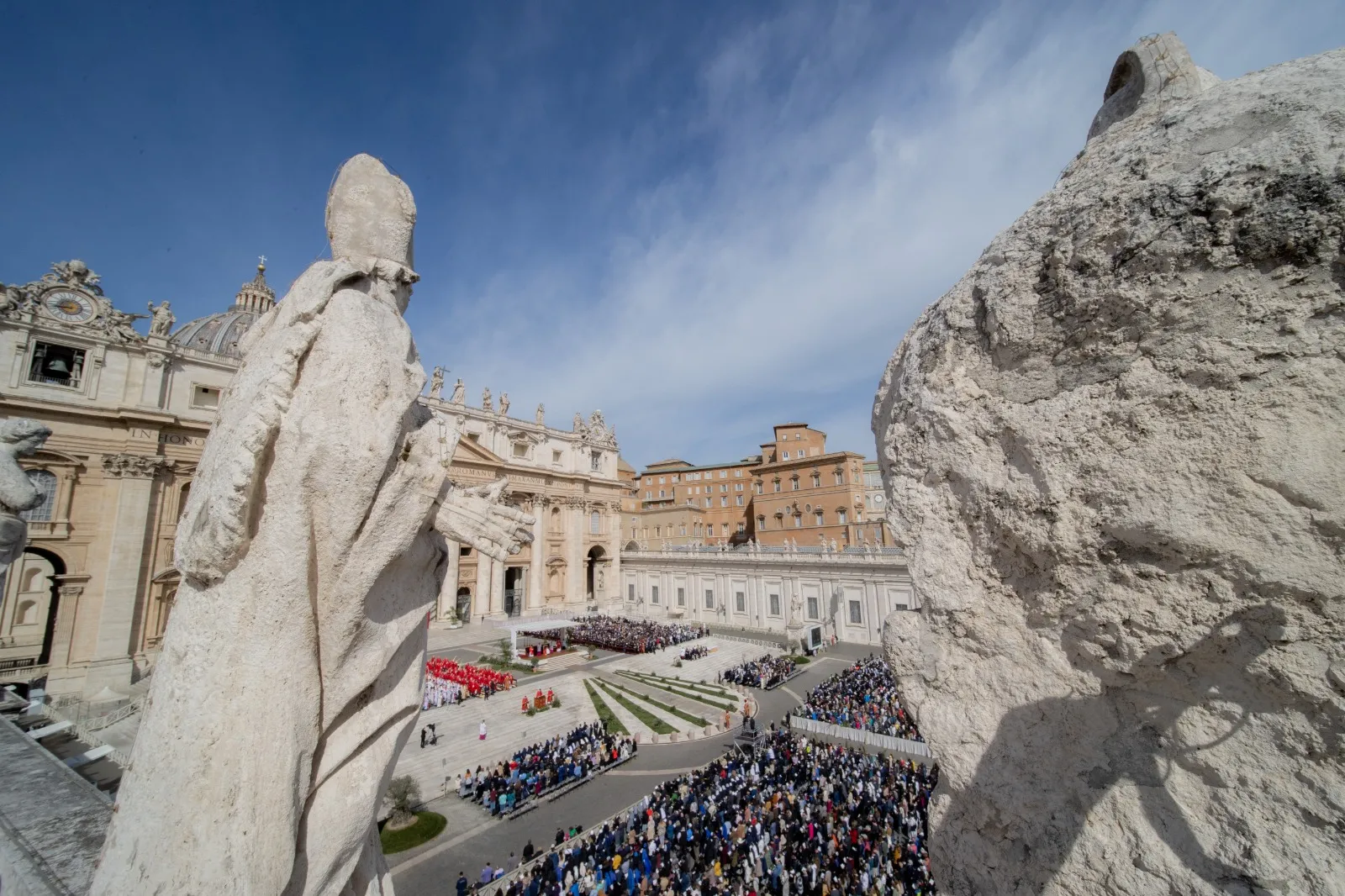
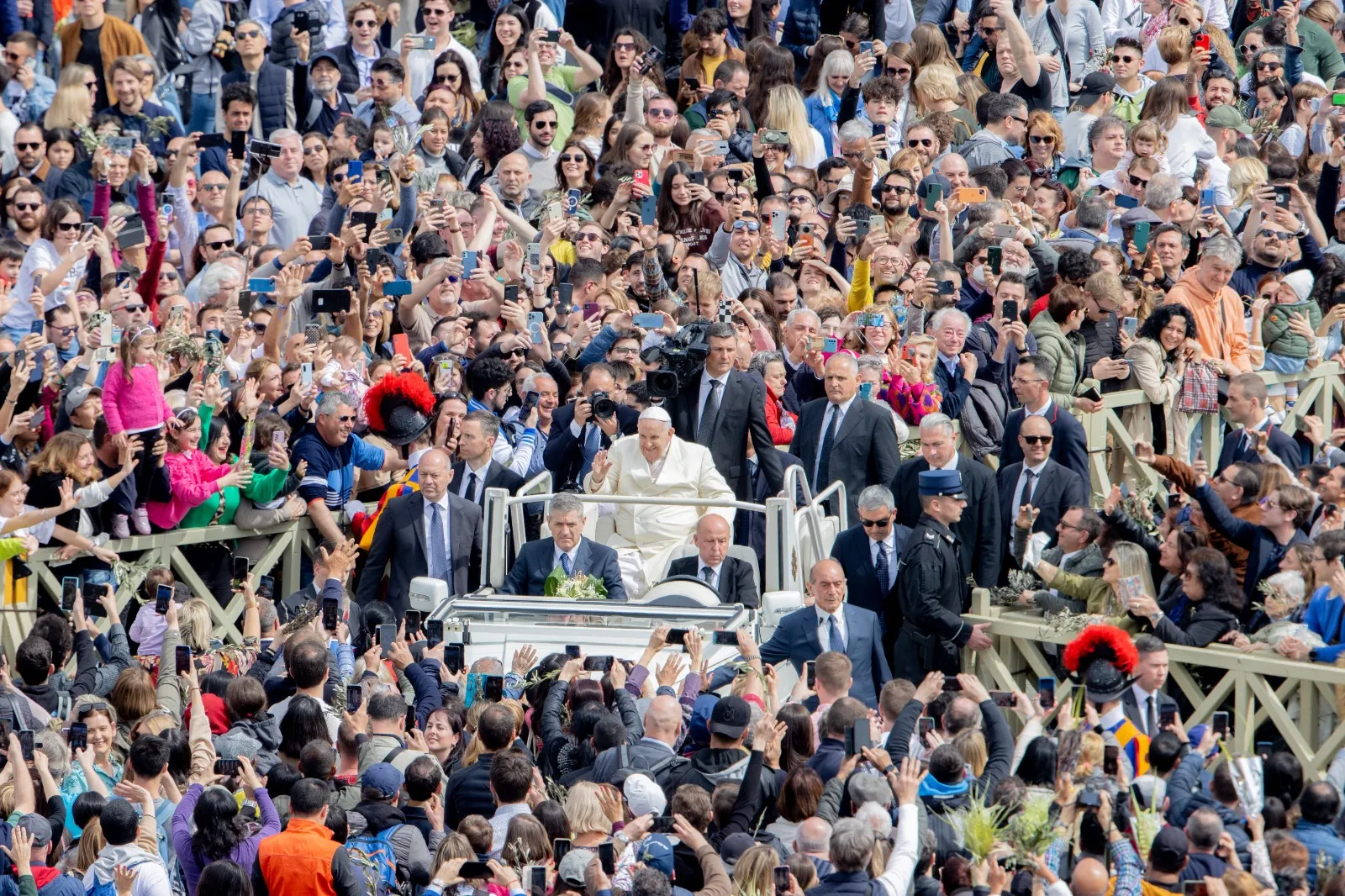


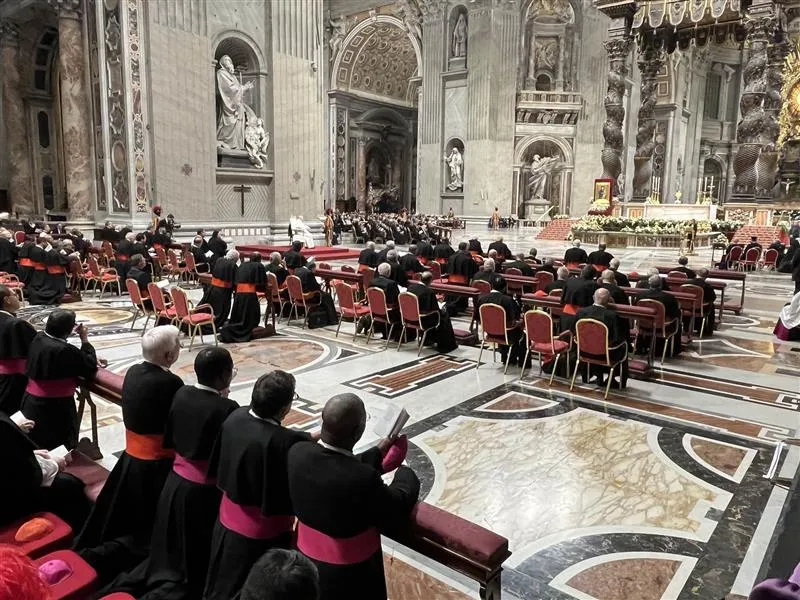
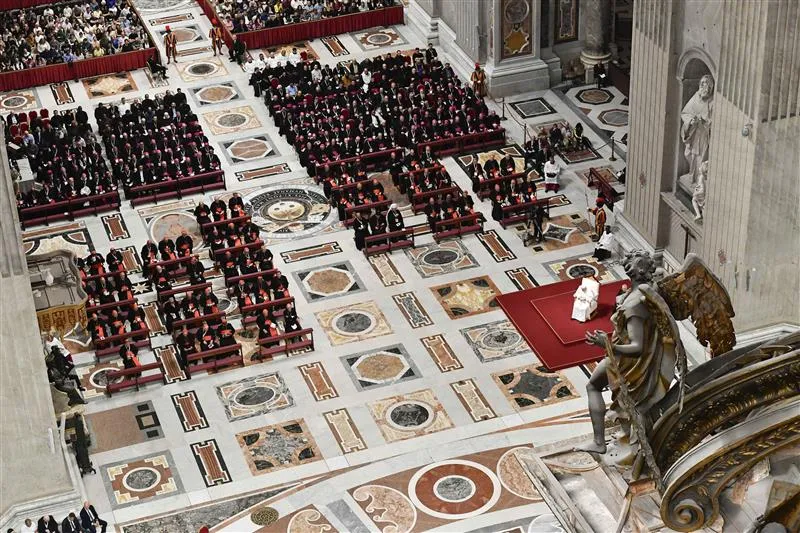
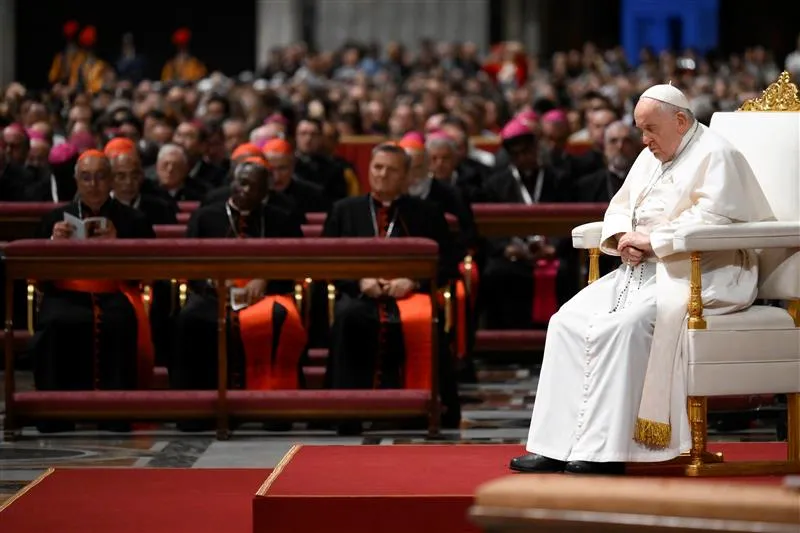
Much written here is correct. However, the Catholic church in the US and elsewhere understand how the western powers added to the mass emigration of people from war torn regions of the world. If the US and western powers did not involve themselves the Middle East due to geopolitical interests, many believe there would be little mass emigration from the region. So, the US and western powers must accept the consequences of their illegal acts in the region.